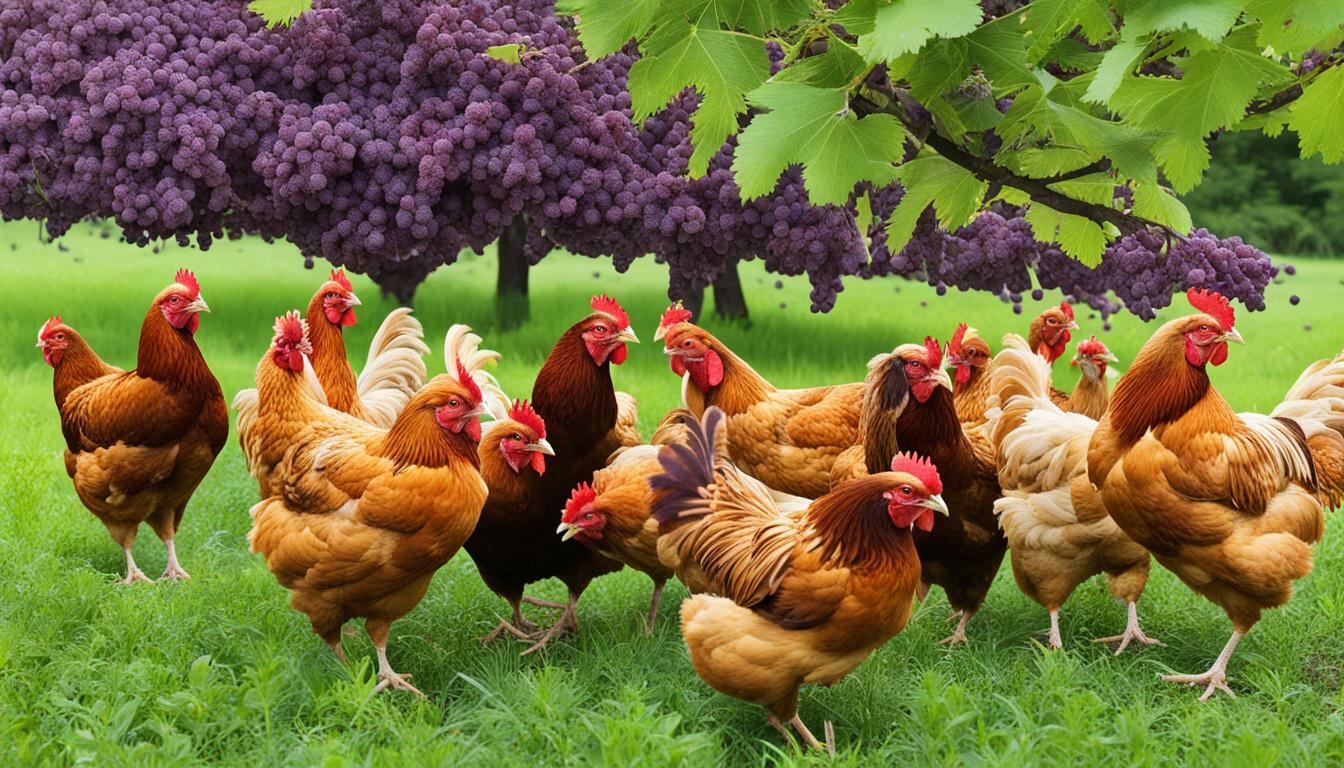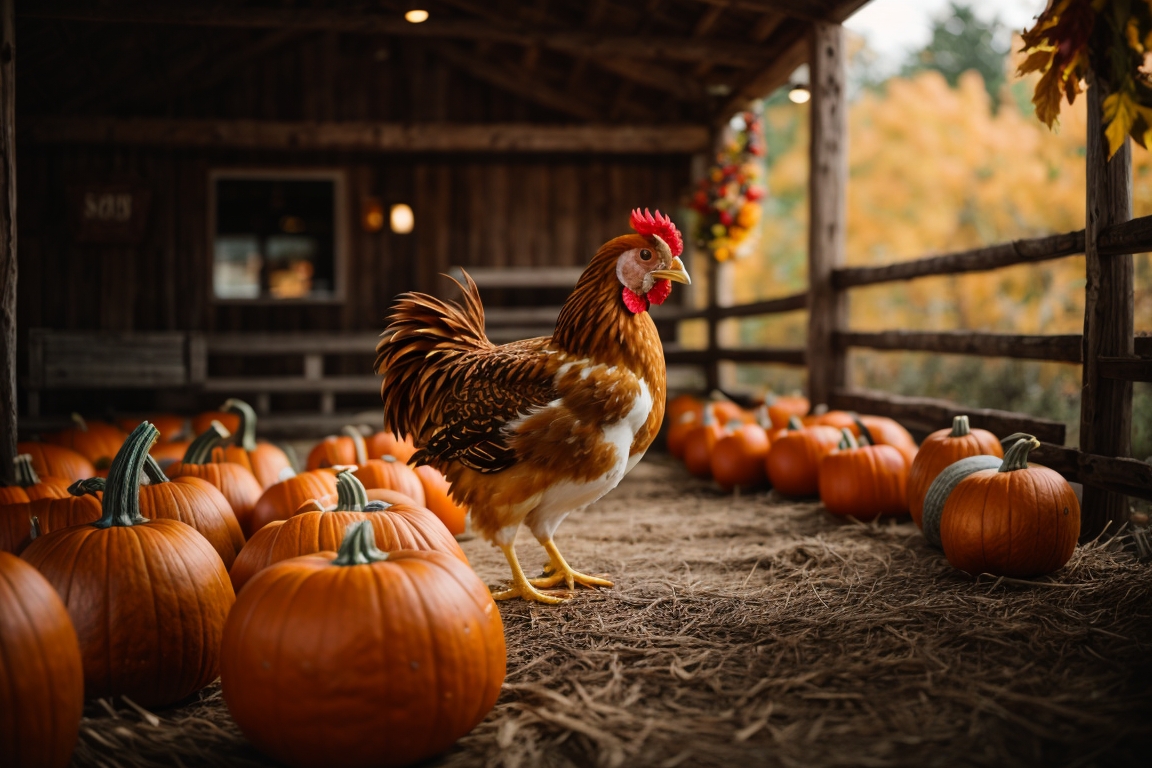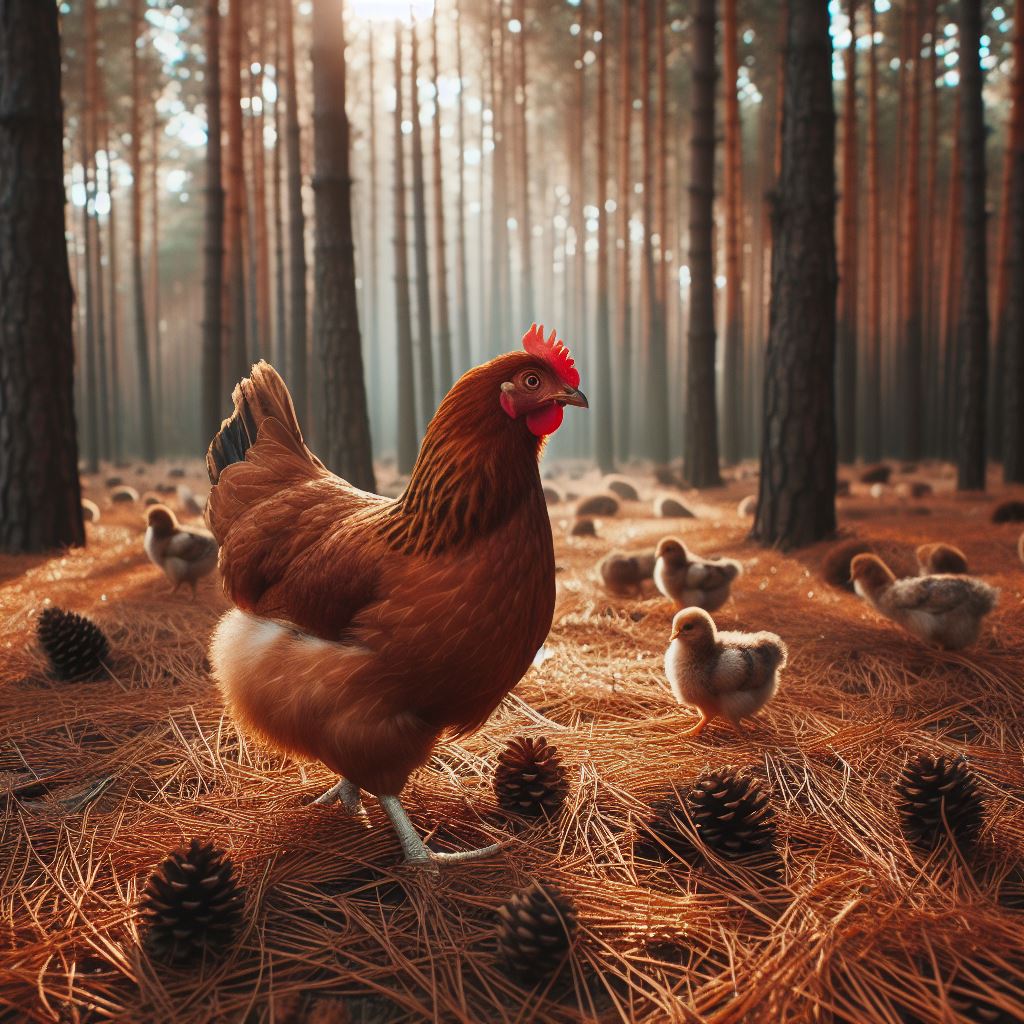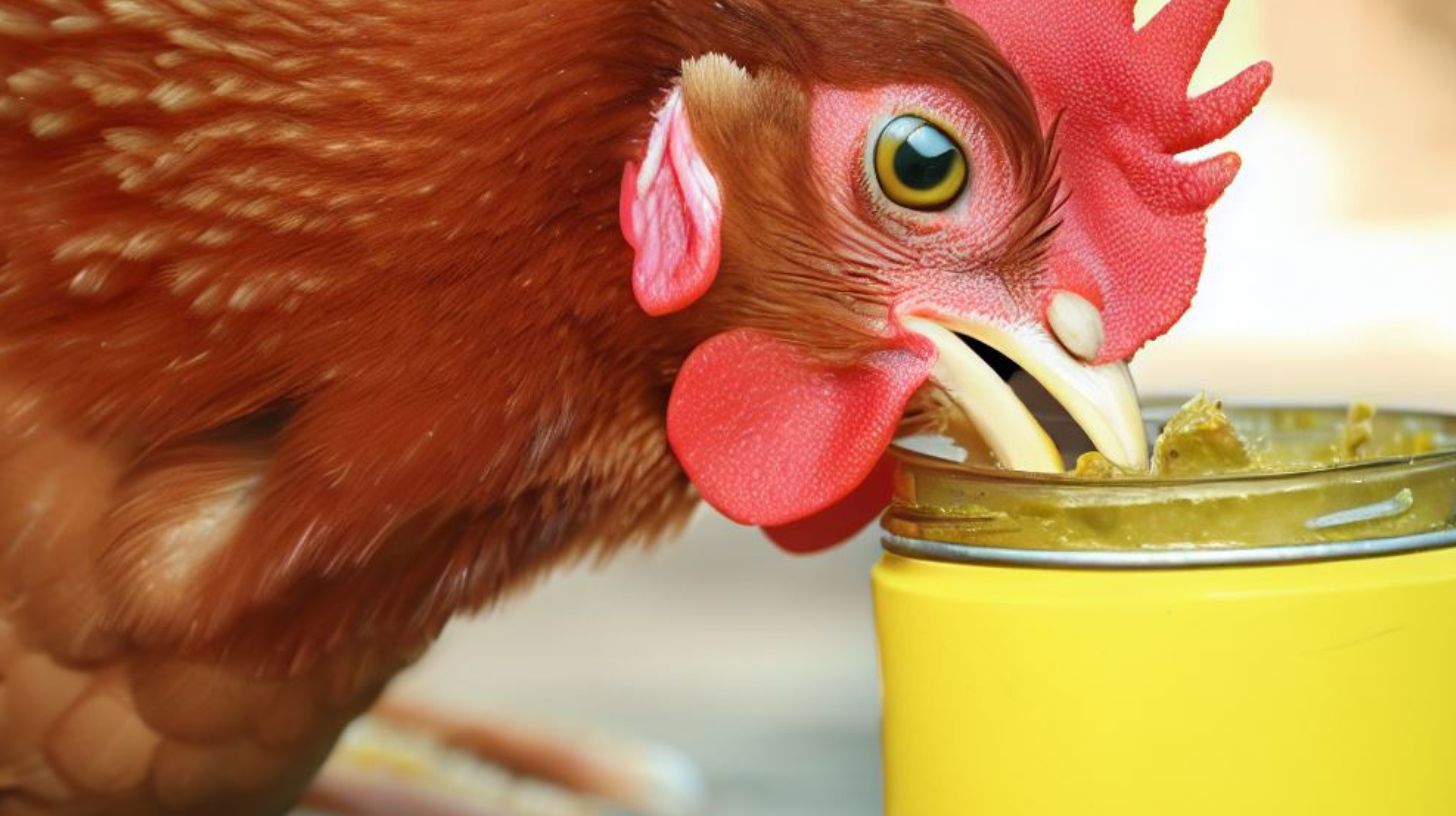Can Chickens Eat Mulberries? Discover a Tasty Treat for Your Flock

Table of content:
- Are Mulberries Safe for Chickens?
- What are the Benefits of Feeding Chickens Mulberries?
- What Fruits Can Chickens Eat?
- How Many Mulberries Can I Feed My Chickens?
- How to Safely Feed Chickens Mulberries
- Should I Limit Mulberry Treats for Chickens?
- Do Mulberries Have Natural Sugars?
- Can Too Much Fruit Cause Loose Stool in Chickens?
- Healthy Alternatives to Fruit Treats
- Final Thoughts
Mulberries are a tasty summer fruit that can be found growing wild or cultivated in many backyards. If you have backyard chickens, you may be wondering if you can share some of this bounty with your flock. The good news is that mulberries are safe and healthy for chickens to eat. Here’s a detailed look at the benefits of feeding chickens mulberries and how to do it safely.
Are Mulberries Safe for Chickens?
Mulberries contain healthy vitamins, minerals, antioxidants, and fiber. They are safe for chickens to eat and provide a beneficial treat. Both white and red mulberry varieties are non-toxic for chickens. However, moderation is still key, as too much of any treat can lead to obesity or other health issues.
What are the Benefits of Feeding Chickens Mulberries?
Mulberries offer nutritional benefits for chickens:
- Rich in Antioxidants – Contains compounds like anthocyanins, zeaxanthin, and resveratrol to support immunity and overall health.
- Excellent Source of Vitamin C – Vitamin C promotes collagen formation and is an antioxidant. It supports bone and tissue health.
- Provides Fiber – Fiber aids digestion and gut health. It may prevent crop impaction.
- Provides Other Vitamins and Minerals – Including vitamin E, iron, and potassium. These support blood, cells, bones, feathers, and eggshell formation in chickens.
- Natural Sugars for Energy – The sugars in mulberries provide a source of carbohydrates for energy.
Overall, mulberries are a healthy supplement to a balanced diet. They offer phytonutrients, vitamins, and minerals that benefit chicken health and egg production.
What Fruits Can Chickens Eat?
Many fruits from the garden are safe for chickens in moderation, such as:
- Berries – Strawberries, blueberries, raspberries, blackberries.
- Melons – Cantaloupe, honeydew, watermelon.
- Fruit – Apple, pear, peach, nectarine, plum, pineapple, mango.
- Citrus – Oranges and clementines. (Limit citrus to small amounts.)
- Grapes – Cut in half to avoid choking hazard.
- Figs
- Bananas
Avoid avocados and fruit seeds, pits, and plant parts like stems, leaves, and fruit peels. Introduce new fruits slowly.
How Many Mulberries Can I Feed My Chickens?
It’s fine for chickens to eat mulberries from trees or bushes growing in their run. For supplemental feeding, a good general rule is:
- No more than one handful of fruit per chicken per day.
- Feed fruit as an occasional treat, not a daily food.
- Avoid allowing chickens to engorge on fallen fruit beneath trees, which could lead to overconsumption.
- Mix or alternate mulberries with other healthful treats.
- Remove uneaten fruit within an hour to avoid spoilage.
Limit high-sugar fruits like grapes, bananas, and melons even further to only a few pieces 1-2 times per week.
How to Safely Feed Chickens Mulberries
Here are some tips for safely providing mulberries to your flock:
- Wash thoroughly if picked from trees. Mulberries can harbor bacteria like salmonella.
- Chop or mash larger berries for easier eating.
- Mix into feed or serve from hanging treat balls to prevent selective feeding.
- Introduce slowly at first to watch for any signs of digestive upset.
- Ensure plenty of fresh water is available at all times.
- Offer grit to aid digestion of fruit.
- Remove any uneaten portions within an hour.
- Store picked berries in the refrigerator and use within 3 days.
With a little care and moderation, backyard chickens can safely enjoy mulberries and reap their healthy benefits.
Should I Limit Mulberry Treats for Chickens?
It’s fine for chickens to eat some mulberries they forage on their own. However, you should limit how many you offer as supplemental treats. Here’s why:
- Obesity – Too much fruit can lead to weight gain. Obese chickens are prone to other issues.
- Nutritional Imbalances – Fruits don’t provide complete nutrition. A diverse diet is important.
- Crop Impaction – Too much fruit at once before digestion can compact in the crop.
- Loose Droppings – Excess fruit consumption may cause loose stool or diarrhea.
- Selective Feeding – Chickens may fill up on treats instead of eating layer feed.
- Pest Attraction – Uneaten fruit increases pest risks like rats, flies, and raccoons.
It’s best to feed fruit in moderation a few times a week at most. Follow treat guidelines and watch your chickens’ health.
Do Mulberries Have Natural Sugars?
Yes, mulberries contain natural fruit sugars. One cup of raw mulberries provides about 9 grams of sugar. For perspective, that’s a little less than a medium apple which has 19 grams of sugar.
So while mulberries are high in healthy vitamins, antioxidants, and fiber, their sugar content should be considered from an obesity and nutritional standpoint when feeding chickens.
Can Too Much Fruit Cause Loose Stool in Chickens?
It’s possible for too much fruit to cause loose droppings, diarrhea, or digestive upset in some chickens. Things to watch for include:
- Loose watery stool
- Evidence of undigested seeds or pulp
- Lack of formed droppings
- Stained vent feathers
This reaction is most common when chickens engorge on fallen fruit or are introduced to fruit too quickly. Always transition new treats slowly. Provide insoluble fiber from sources like oats, greens, or hay to balance fruit’s effects.
If diarrhea persists more than 24 hours, restrict fruit and consult a vet, as illness could be the cause.
Healthy Alternatives to Fruit Treats
To provide variety and enrichment, use moderation when feeding fruit treats. Here are some healthy alternatives:
- Fresh greens – Kale, chard, lettuce leaves.
- Fresh sprouted grains and legumes.
- Chopped hard boiled eggs.
- Mealworms.
- Scratch grains like oats, wheat, barley.
- Plain yogurt.
- Chopped tomatoes and peppers.
- Cooked sweet potato or pumpkin cubes.
- Unsalted popcorn or sunflower seeds in moderation.
These provide protein, nutrients, and fiber without excess sugars.
Remember to introduce new foods slowly and in small amounts to observe your chickens’ reaction.
Final Thoughts
Mulberries are a safe, healthy treat that backyard chickens can enjoy in moderation. Their vitamins, minerals, antioxidants, and fiber benefit chicken health and productivity. Just be sure not to overdo it, as too much can lead to obesity, nutritional imbalance, digestive issues, and other problems. Follow treat guidelines, transition slowly, and vary treats for the best results. Your chickens will appreciate the natural forage and yummy berries!
Welcome. I’m Adreena Shanum, the proud owner of this website, and I am incredibly passionate about animals, especially poultry. I founded adreenapets.com as a labor of love, stemming from my desire to share my knowledge and experiences with poultry enthusiasts worldwide.




